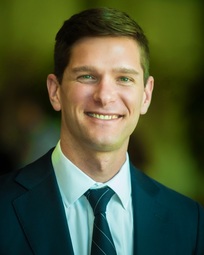 Brad Rathgeber, Executive Director Brad Rathgeber, Executive Director Last year, my colleague Lorri Palko and I developed a six-month long blended professional development experience designed to help schools create comprehensive plans for online and blended learning. Thirty-five schools in four regions participated in the program last year. This year, we will work with more than one hundred schools in ten regions around the country. The program is structured with six months worth of online course work and two in-person workshops. During the first in-person workshop, I am often asked what I think is most essential for independent schools to do in this field. Every time, I answer: start tinkering. I know that this advice flies against the traditional operation of independent schools – we want to study and contemplate change. And, this inclination comes from a good place – we want to make sure that we are offering the “best” education possible to our students and for our families. Today, with our understanding of brain development evolving and with the options for pedagogical change through technological advancements increasing, “best” is a moving target. Schools that have been experimenting, trying things out, and tinkering are finding out that the benefits of doing so are not always the ones that are sought from the outset – they are finding unexpected positive outcomes. In the August 2013 Scientific American, Rob Lue, the Richard L. Menschel Faculty Director of the Derek Bok Center for Teaching and Learning at Harvard, chronicled his journey with online education. Lue was one of Harvard’s early pioneers in online education – creating an online course for the first time more than a decade ago. Then, Lue, a molecular biologist and HIV/AIDS expert, saw online education as a way “to combat the many misconceptions surrounding AIDS in the public mind.” That goal could be accomplished, but Lue found online education could do more: Online classes are not just about sharing educational materials via the Internet; they are also about developing new ways of teaching based on those materials for both on-campus and online audiences. Lue argues that success in developing new teaching methods is a direct result of tinkering and experimenting in the field: Underlying all these exciting efforts is the awareness that experimentation is key and that we do not yet know how to best harness the enormous positive potential of the online revolution for on-campus learning… Indeed, institutions of higher education must engage with this process of exploration if we are to develop effective new models that broaden access to high-quality educational content while sustaining and indeed growing the in-person structures that support the joint enterprise of research, scholarship and teaching. In our work with independent schools, we have found that some of the early “tinkerers” in online learning (schools that started tinkering two, three, or four years ago) are finding that their approaches to curriculum and teaching are changing (increasingly at a fast rate). These tend to be the schools that experimented with flipped learning three years ago, that have developed some of their own online courses, and that have “blended” class time with online course work (to the point where some “seat time” is eliminated). Over the next number of years, as independent school faculty tinker and experiment, and as we learn from practitioners like Lue, our teaching practices will change and new ideas will emerge. But, however they change and however they emerge, it seems that the schools that have been experimenting and tinkering will be able to adopt and adapt quickly, while those who wait for one “best” practice to emerge before ever engaging, may be waiting, and waiting, and waiting…
0 Comments
|
Don't miss our weekly blog posts by joining our newsletter mailing list below:AuthorsBrad Rathgeber (he/him/his) Archives
July 2024
Categories |

 RSS Feed
RSS Feed